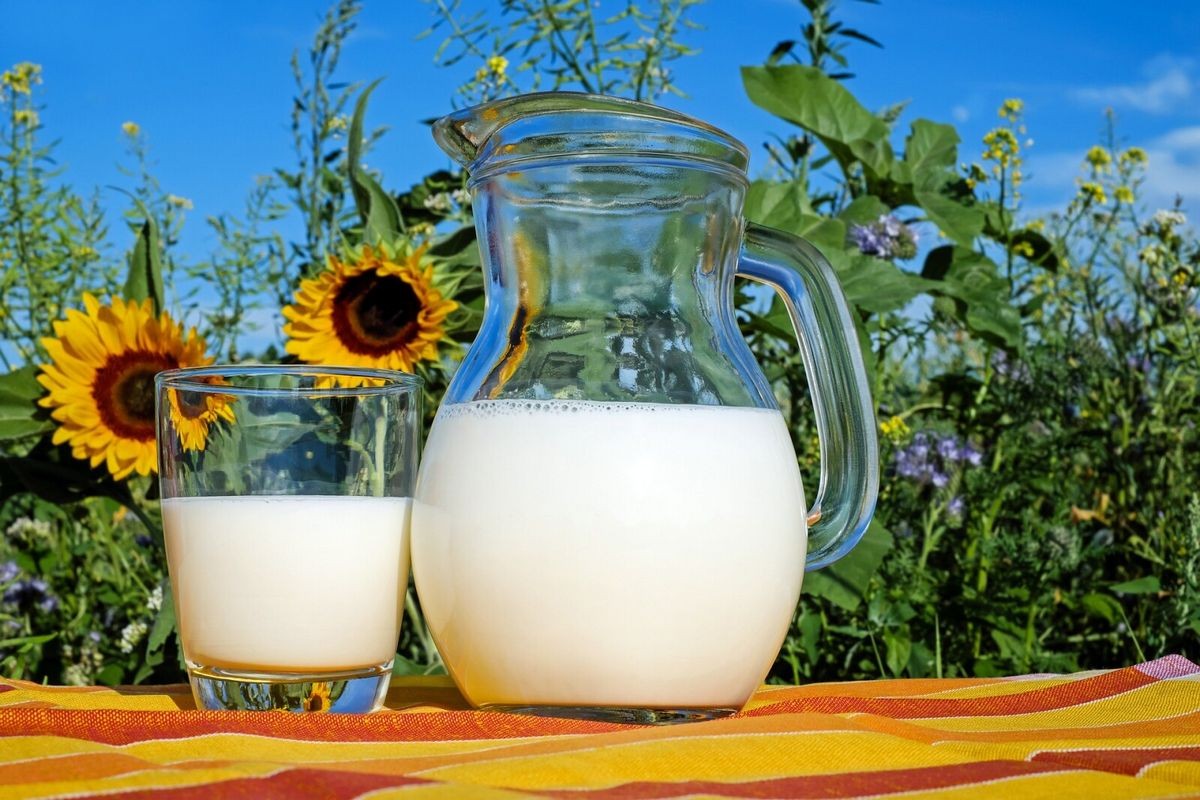
Contents
Can Dairy Cause Inflammation?
Inflammation protects the body against infections, but milk and milk products can trigger inflammation in some individuals.
Nutritional advice regarding dairy can be conflicting. Some diets recommend its inclusion as a healthy source of nutrition, while others advocate for its exclusion due to its potential to cause inflammation. Read on to discover whether dairy is beneficial or detrimental to your health: Learn why it is believed to be inflammatory, whether you should include it in your diet, and more.
Inflammation is a bodily process that safeguards against dangers like infections. There are two main types of inflammatory reactions:
- Acute (a short-term reaction lasting a few days)
- Chronic (a long-term response lasting over 6 weeks)
The body possesses a specialized immune system that responds to inflammatory triggers, such as pathogens (bacteria or viruses) and injuries (cuts and scrapes). In response, chemical messengers like cytokines, prostaglandins, and histamine are released, initiating an inflammatory reaction. These chemicals direct white blood cells to surround and protect the affected area, fighting off pathogens while promoting tissue healing.
Inflammation is an effective defense mechanism, but excessive inflammation can be detrimental. Chronic inflammation can severely damage tissues and organs. It can be triggered by chemicals like cigarette smoke or health conditions like obesity. Chronic inflammation can lead to blood vessel damage, clot formation, and an increased risk of heart attacks or strokes.
What does dairy contain? Is it inflammatory?
Dairy products include butter, cheese, yogurt, ice cream, and other products made from the milk of cows and goats.
Typically, milk and other dairy products contain:
Sugars (carbs)
Milk contains lactose, a significant type of sugar. Difficulty digesting lactose due to the absence of the lactose-digesting enzyme may lead to lactose intolerance. This condition can cause symptoms similar to inflammation, including bloating, diarrhea, and cramps.
Fats
Full-fat milk and other dairy products contain saturated fats, which can increase inflammation by promoting the absorption of lipopolysaccharides, inflammatory molecules.
Protein
Milk proteins, such as casein and whey, are easily digested and have beneficial effects, such as promoting weight loss, enhancing muscle tone, and aiding muscle recovery after exercise.
Other Nutrients
Milk and dairy products like yogurt are highly nutritious. They are rich in vitamin D, B vitamins (such as riboflavin and vitamin B12), calcium, and probiotics, which support immune function, manage inflammation, and maintain bone, nerve, and muscle health.
Dairy products are also a source of conjugated linoleic acid (CLA), an essential fatty acid associated with health benefits like fat loss.
Can dairy components cause inflammation?
The inflammatory effects of dairy may vary among individuals. While some studies suggest that milk and dairy products can cause inflammation, others indicate that they do not. The variation in findings may be due to different study methodologies, demographics, health conditions, and diets of the study populations.
If you have a milk allergy or lactose intolerance, consuming dairy products can trigger an inflammatory reaction. Drinking milk or eating dairy products has also been linked to an increased risk of acne, particularly among teenagers and young adults.
However, in individuals without related health conditions like lactose intolerance, several studies indicate that consuming milk or dairy products does not cause or increase inflammation. In fact, recent research suggests that dairy products, both full-fat and low-fat, can decrease inflammatory activity in people with metabolic disorders.
Therefore, the available evidence does not consistently link all types of dairy to inflammation in most cases. However, certain dairy products such as cheese may be associated with an increased risk of type 2 diabetes, a condition involving low-grade inflammation. On the other hand, yogurt has been linked to a reduced risk of type 2 diabetes.
Further research is needed to determine which dairy components are pro- or anti-inflammatory, which dairy products promote inflammation, and which products should be avoided to reduce chronic inflammation.
Should you include dairy in your diet?
Milk and dairy products are highly nutritious and offer numerous health benefits. For instance, milk protein can aid weight loss, enhance muscle tone, and improve post-workout recovery. Dairy products also support immune function and bone health.
Inflammation is a natural defense mechanism, but excessive inflammation can be harmful. Although some studies loosely associate full-fat milk and other dairy products with inflammatory conditions like acne, others suggest that dairy is not inherently inflammatory.
If you have a dairy allergy or lactose intolerance, consider eliminating dairy products from your diet to avoid bloating and cramping. However, if you have no health risks, including dairy in your diet may provide beneficial effects. Before making any changes, consult your healthcare provider for guidance.
QUESTION
Sources:
– Advances in Nutrition (Bethesda, Md.): "The science of fatty acids and inflammation," "Whole-Fat or Reduced-Fat Dairy Product Intake, Adiposity, and Cardiometabolic Health in Children: A Systematic Review."
– Advances in Nutrition: "Milk and Dairy Product Consumption and Inflammatory Biomarkers: An Updated Systematic Review of Randomized Clinical Trials."
– American Journal of Clinical Nutrition: "Changes in dairy product consumption and risk of type 2 diabetes: results from 3 large prospective cohorts of US men and women," "Effects of fruit and vegetable consumption on inflammatory biomarkers and immune cell populations: a systematic literature review and meta-analysis."
– Clinical Nutrition (Edinburgh, Scotland): "Dairy intake and acne development: A meta-analysis of observational studies."
– Critical Reviews in Food Science and Nutrition: "Dairy products and inflammation: A review of the clinical evidence."
– Frontiers in Medicine: "Inflammation-Nature’s Way to Efficiently Respond to All Types of Challenges: Implications for Understanding and Managing "the Epidemic" of Chronic Diseases."
– Harvard Medical School: "What is inflammation?"
– NIH: "Calcium," "Riboflavin," "Vitamin B12," "Vitamin D."
– Nutrients: "Consumption of Milk Protein or Whey Protein Results in a Similar Increase in Muscle Protein Synthesis in Middle Aged Men," "Dairy Intake and Acne Vulgaris: A Systematic Review and Meta-Analysis of 78,529 Children, Adolescents, and Young Adults," "Dairy Intake Enhances Body Weight and Composition Changes during Energy Restriction in 18–50-Year-Old Adults—A Meta-Analysis of Randomized Controlled Trials," "Effects of Probiotics, Prebiotics, and Synbiotics on Human Health," "Lactose Intolerance, Dairy Avoidance, and Treatment Options."
– Nutrition: "Dairy consumption and inflammatory profile: A cross-sectional population-based study, São Paulo, Brazil."


